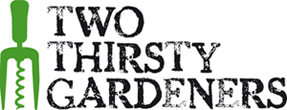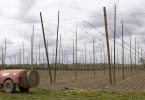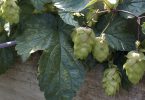It’s advisable to have a clear head when you’re about to spend a day in a brewery making beer. That’s why we began a cool but clear September morning on a shingle beach, inhaling deeply while gazing at the sun rise across the sea with our backs to the Cornish village port of Charlestown. On waking our heads possessed a slight fog from the night before, but a bracing blast of sea air soon dealt with that inconvenience.
That previous evening was spent in the The Harbourside Inn, a Charlestown pub owned by the nearby St Austell Brewery, where we enjoyed their latest Small Batch Beer, Anthracite, a delicious porter made in collaboration with New Zealand brewing stars The Yeastie Boys. Somehow, we managed to persuade Brewing & Bottling Manager Rob Orton and PR Manager Megan Hocking that their Small Batch series should also feature a beer brewed in collaboration with us: a beer that takes one of our favourite home grown teas at its inspiration.
The tea that appealed to Rob’s experimental nature is our twist on a popular Moroccan combination of green gunpowder tea and lemon verbena – the twist being that we also like to add a couple of freshly picked hops to each during harvest season. So we loaded up the car with home grown lemon verbena and hops plundered from our gardens, allotment and nearby hedges, headed to Cornwall and began our beer brewing adventure. Here’s a photo essay of the day…

The picturesque village Charlestown also doubles up as Truro in Poldark*, making it a popular stop-off point for tourists visiting Cornwall’s south coat.

St Austell’s Brewery has a complete, open plan brewing set-up used exclusively for small batch brews. It’s here their collaborations and experimental beers are made, with the whole process visible to tourists from the floor above.
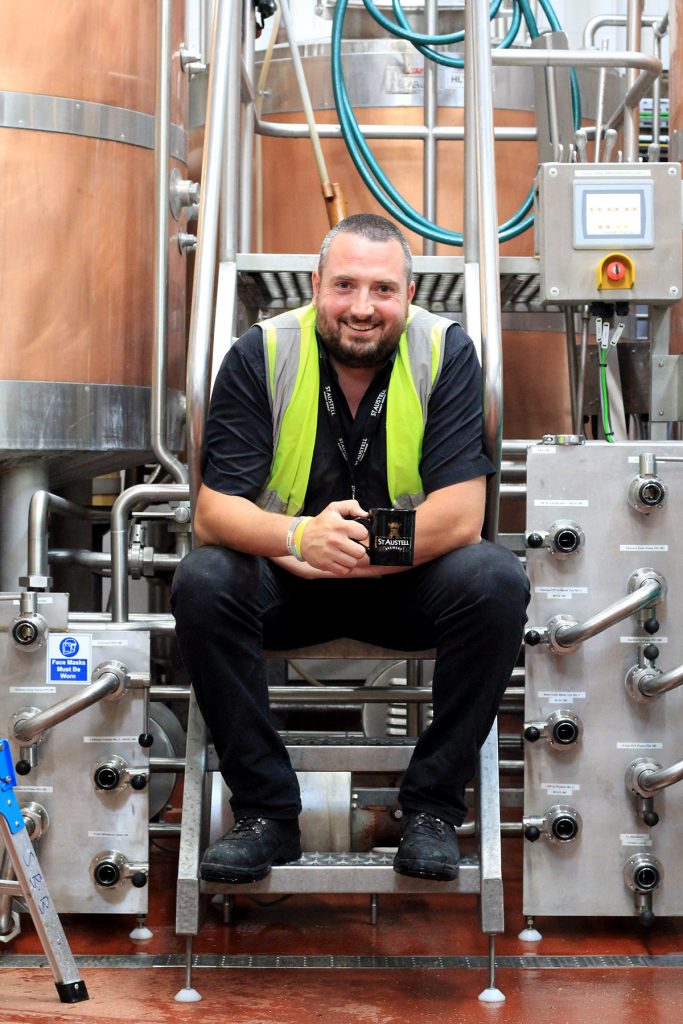
Rob Orton, our boss for the day and the man responsible for turning our Wild Tea Beer idea into something drinkable.
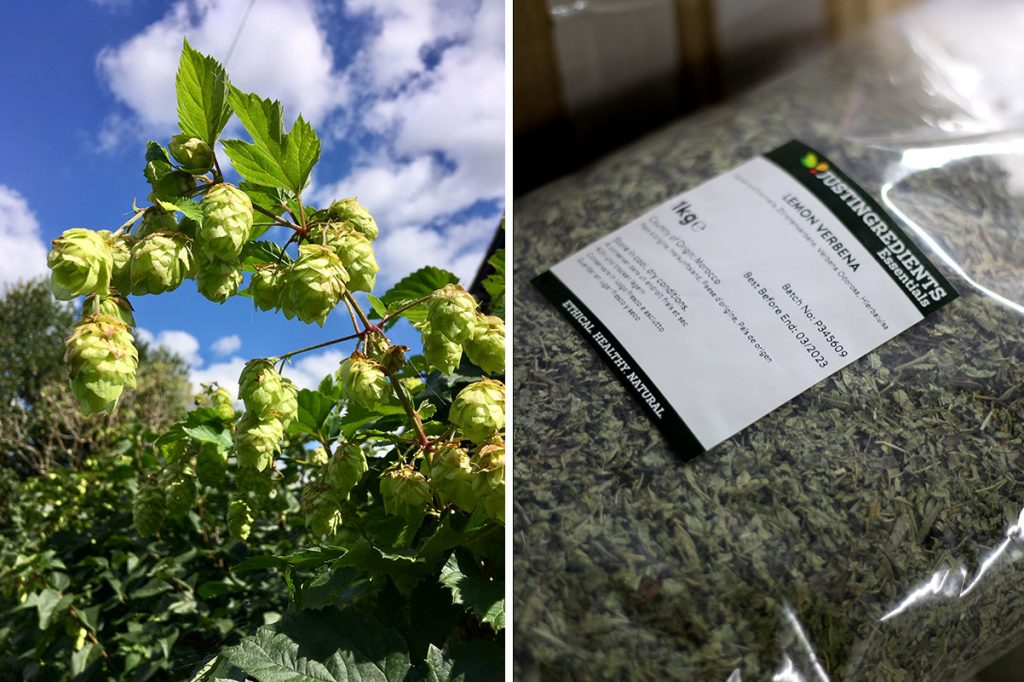
For our collaboration beer we picked hops from our allotment, garden and neighbouring hedgerows along with some home grown lemon verbena. That wasn’t nearly enough for a full brew so Rob also ordered fresh and dry hops along with several large packs of dried lemon verbena and gunpowder tea.
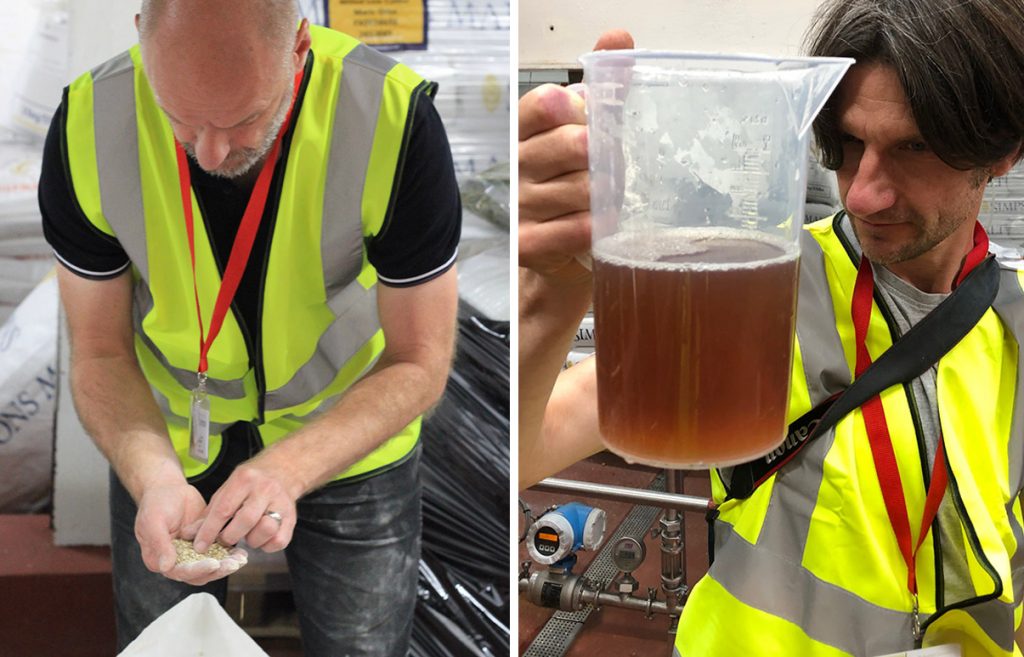
Rich inspects the malt used to brew the beer: 275kg Maris Otter (St Austell Brewery is the biggest buyer of this grain in the world), 50kg wheat and 25kg Cara malt. Once converted to a hot wort it’s time to check the sweet, malty liquid – a tasty drink referred to as ‘brewers breakfast.’
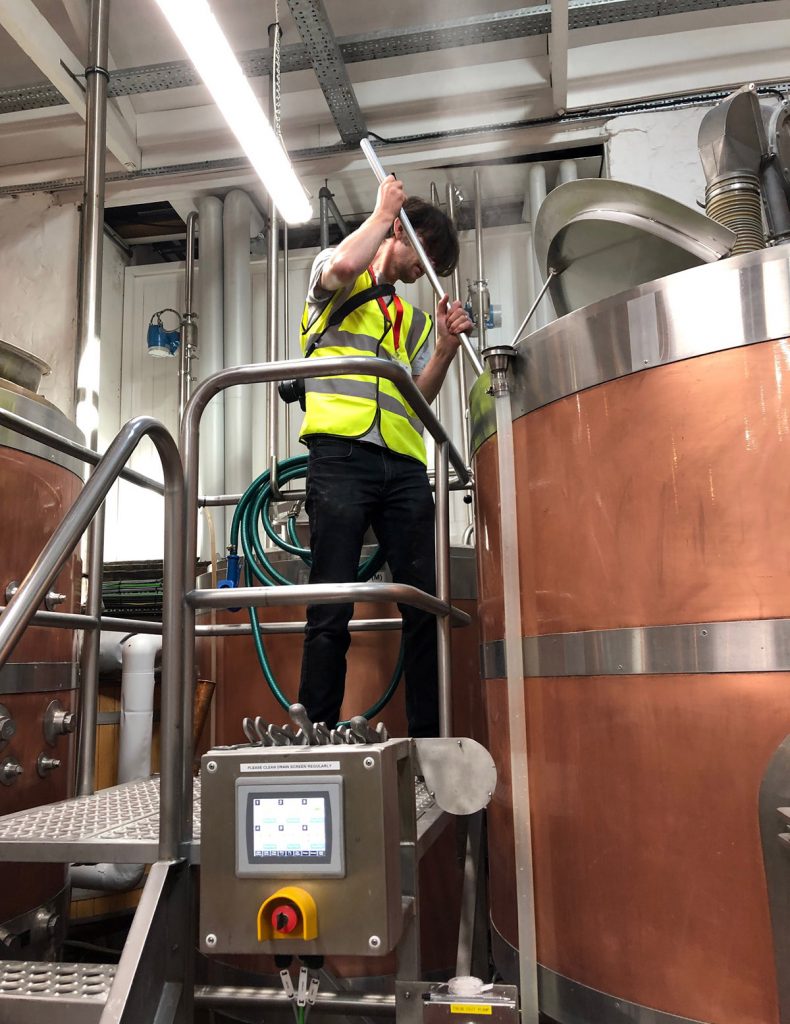
St Austell Brewery is spotlessly clean, so after the hot wort has been run off it’s time to scrub out the mash tun.
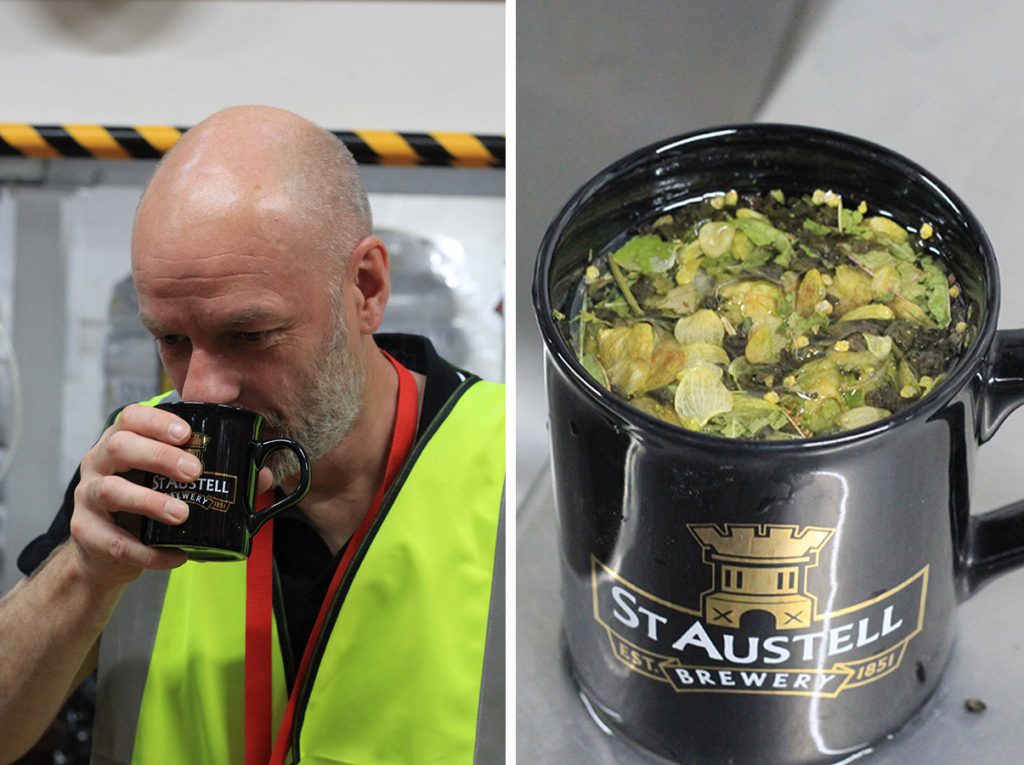
A ‘hop tea’ is made with the lemon verbena, green tea and hops to check that everyone is happy with the proportions of each ingredient.
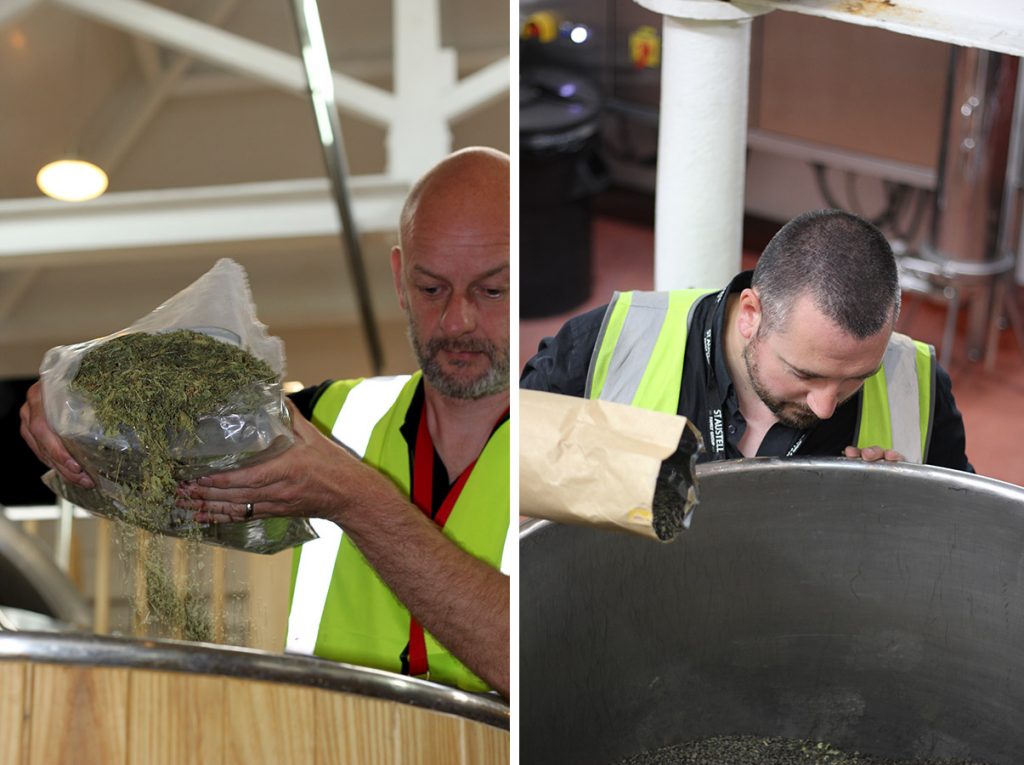
The lemon verbena, green tea and fresh hops are poured into a hopback…
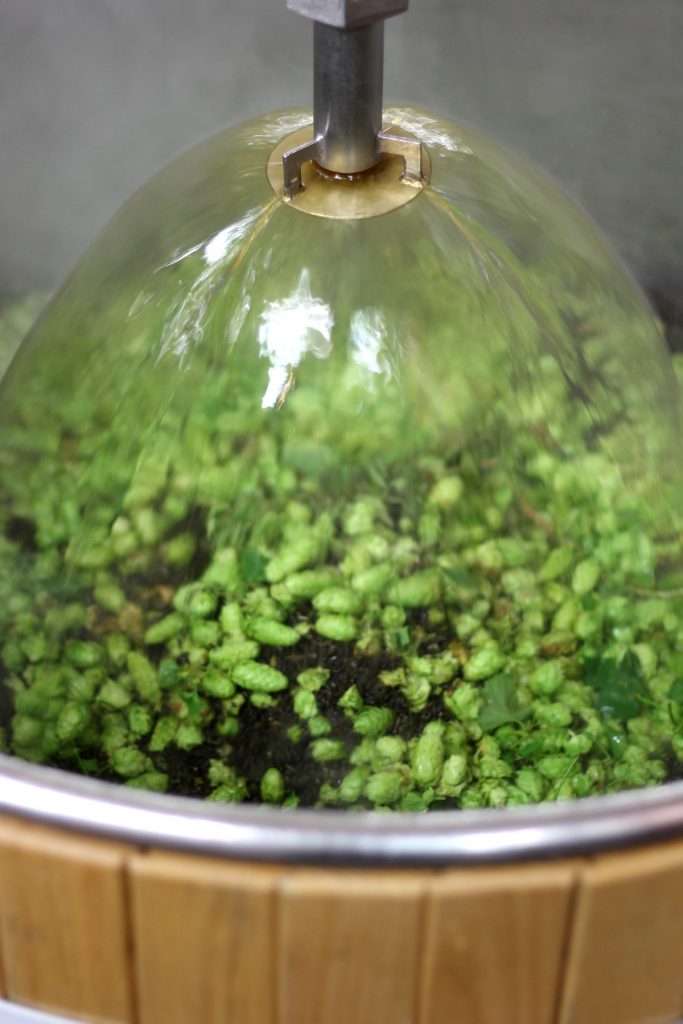
…and the hot wort is added, extracting the various aromas, flavours and bitterness.
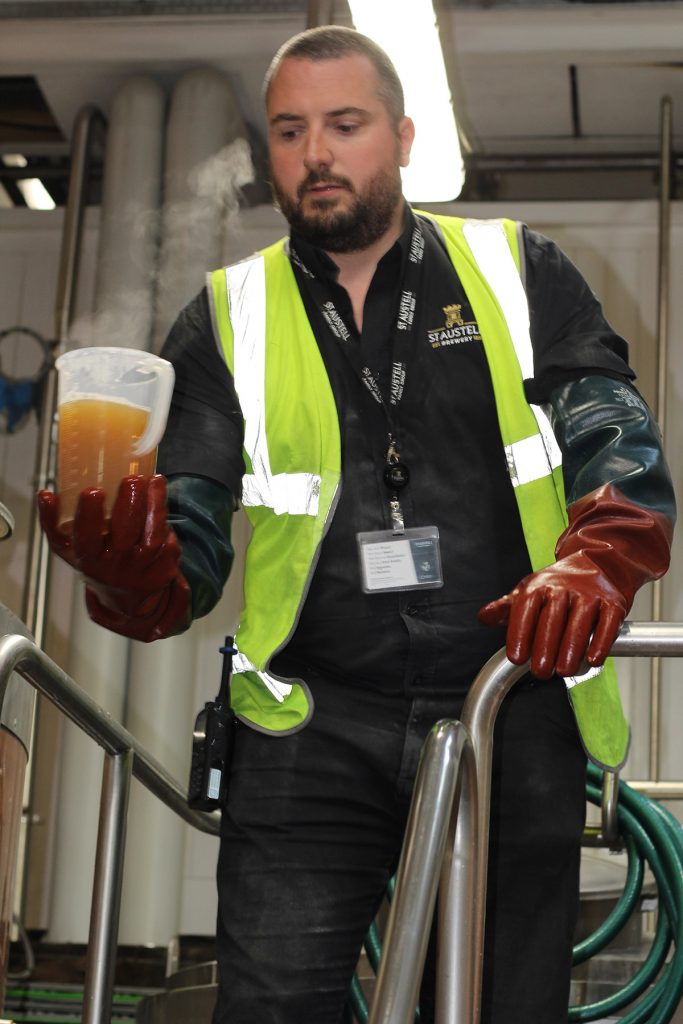
Rob regularly checks the hot beer before it’s transferred to the fermenter for the magic to happen. Then all we can do is wait.
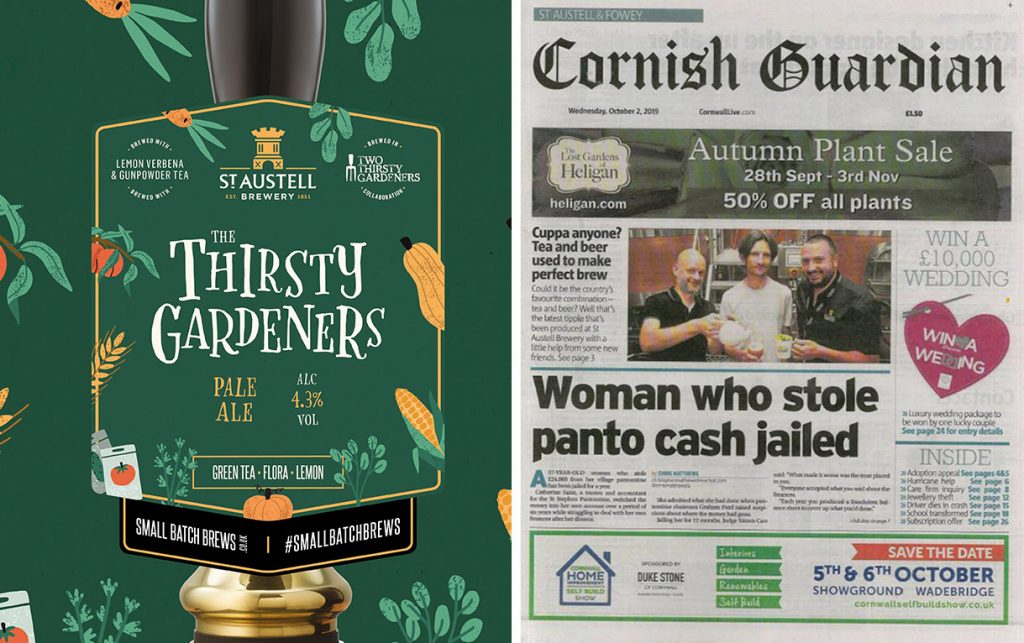
We get to taste the finished beer (named ‘The Thirsty Gardeners Pale Ale’) three weeks later. Rob has done a great job – it’s full of fresh, green herbal aroma and flavour, with a good of hit zesty lemon (but without lemon’s sourness) and the unmistakeable tannic ‘bite’ of tea. The project also caught the imagination of the press, with a story running on the front page of the Cornish Guardian. “Tea and beer used to make perfect brew” – we couldn’t agree more.
*Poldark is popular period drama featuring pits, scythes, glistening abdominals** and that bloke from Quadrophenia. Coincidentally, Nick’s home town Frome also masquerades as the 18th century Cornish capital in some other scenes from the show.
**It’s Rich’s head that glistens when he’s in scything action.
